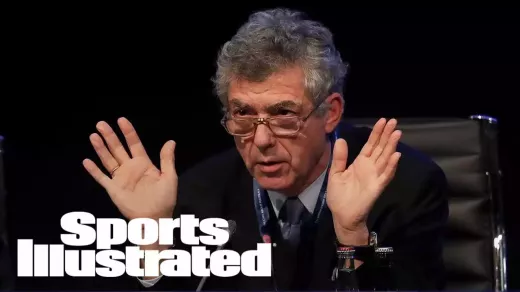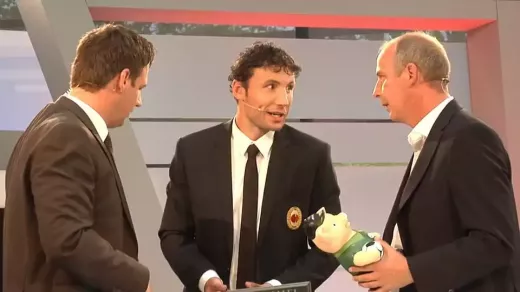Overview of Europa League Qualification
Qualifying for the Europa League is a dream for many football clubs. This tournament, organized by UEFA, provides an opportunity for teams from across Europe to showcase their skills on an international stage. In the past, qualification was primarily determined by a club's performance in their domestic league. However, with the introduction of UEFA Fair Play Rules, the criteria for qualification have expanded to include factors beyond on-field success.
UEFA Fair Play Rules aim to promote fair and ethical conduct in football. These rules cover a wide range of areas, including financial stability, club infrastructure, fan behavior, and even environmental sustainability. By considering these aspects, UEFA aims to create a more balanced and inclusive playing field, where clubs are rewarded not just for their sporting achievements but also for their overall commitment to fair play.
The History and Implementation of UEFA Fair Play Rules
The concept of fair play has always been at the heart of football. However, it was in 1997 that UEFA formalized the Fair Play concept and introduced it as a criterion for European club competitions. Initially, clubs were awarded Fair Play points based on the behavior of their players, officials, and supporters during matches. These points were then used to determine the recipients of the UEFA Fair Play Award.
Over the years, UEFA expanded the scope of Fair Play rules, recognizing the need to address other aspects of club conduct. In 2008, UEFA introduced the concept of Fair Play rankings, which would not only determine the recipients of the Fair Play Award but also influence qualification for the Europa League. This marked a significant shift in the way clubs were evaluated and provided an opportunity for those with lower budgets and resources to compete on a level playing field.
How UEFA Fair Play Rules Impact Europa League Qualification
UEFA Fair Play Rules have had a profound impact on the qualification process for the Europa League. While traditional qualification criteria such as league position and cup victories still hold significance, clubs now also have the chance to secure their place in the tournament through their Fair Play rankings. This offers an opportunity for clubs that may not have achieved top-tier success to still participate in a prestigious European competition.
The Fair Play rankings take into account various factors, including positive play, respect for opponents and referees, behavior of officials and spectators, and overall conduct of the club. By considering these aspects, UEFA aims to reward clubs that demonstrate a commitment to fair play both on and off the pitch. This not only encourages clubs to uphold high standards of conduct but also helps to create a more inclusive and diverse football landscape.
Examples of Clubs Benefiting from UEFA Fair Play Rules in Europa League Qualification
The introduction of UEFA Fair Play Rules has provided smaller clubs with an opportunity to compete at a higher level. One notable example is Östersunds FK, a Swedish club that qualified for the Europa League in the 2017-2018 season. Despite their relatively modest resources and lack of top-flight success, Östersunds FK secured their place in the tournament through their high Fair Play ranking. This achievement not only brought international recognition to the club but also showcased the potential for fair play to level the playing field in European football.
Another example is FC Midtjylland, a Danish club that qualified for the Europa League in the 2020-2021 season. FC Midtjylland's commitment to fair play, both on and off the pitch, earned them a place in the tournament. This success not only highlighted the importance of ethical behavior in football but also demonstrated how clubs can leverage UEFA Fair Play Rules to secure European qualification.
Criticisms and Controversies Surrounding UEFA Fair Play Rules in Europa League Qualification
While UEFA Fair Play Rules have been praised for their efforts to promote fair and ethical conduct, they have also faced criticism and controversies. One of the main criticisms is that the Fair Play rankings are subjective and open to interpretation. This has led to accusations of bias and unfair evaluation, with some clubs feeling that their efforts to maintain high standards of conduct have been overlooked.
Another controversy surrounding UEFA Fair Play Rules is the potential for clubs to exploit the system. Some critics argue that clubs may prioritize fair play over sporting success, strategically manipulating their behavior to improve their Fair Play rankings and secure European qualification. This raises questions about the integrity of the qualification process and whether fair play should be the sole determining factor in Europa League qualification.
UEFA's Evaluation Process for Fair Play Rankings
To determine Fair Play rankings, UEFA evaluates clubs based on various criteria. These include the behavior of players, officials, and supporters during matches, the conduct of club officials, and the overall image and reputation of the club. UEFA takes into account disciplinary records, incidents of violence or racism, and compliance with financial regulations. Clubs are also evaluated on their efforts to promote fair play within their community and their commitment to environmental sustainability.
UEFA employs a team of experts who analyze and assess each club's conduct throughout the season. Fair Play rankings are calculated based on a points system, with clubs awarded or deducted points depending on their behavior and adherence to fair play principles. The rankings are then used to determine the recipients of the Fair Play Award and influence qualification for the Europa League.
Strategies for Clubs to Improve Their Fair Play Rankings and Qualify for Europa League
For clubs looking to improve their Fair Play rankings and qualify for the Europa League, there are several strategies to consider. First and foremost, clubs must prioritize fair and ethical behavior both on and off the pitch. This includes promoting positive play, respecting opponents and referees, and actively engaging in community initiatives. By demonstrating a commitment to fair play, clubs can improve their chances of securing a higher Fair Play ranking.
Financial stability is also a crucial factor in Fair Play rankings. Clubs must ensure they comply with UEFA's financial regulations and demonstrate responsible financial management. This includes maintaining a sustainable budget, avoiding excessive debt, and investing in long-term stability.
Finally, clubs should actively engage with their supporters and foster a positive and inclusive atmosphere during matches. Encouraging fan behavior that aligns with fair play principles can contribute to a higher Fair Play ranking and enhance the club's chances of qualifying for the Europa League.
Other Factors Influencing Europa League Qualification
While UEFA Fair Play Rules have had a significant impact on Europa League qualification, they are not the sole determining factor. Traditional criteria such as league position and cup victories still hold weight in the qualification process. Clubs must perform well in their domestic league and cup competitions to secure a place in the Europa League.
Additionally, UEFA also allocates a certain number of spots for clubs from smaller football associations. This ensures that clubs from countries with fewer resources and lesser-known leagues have a fair chance of participating in the tournament. This approach helps to diversify the competition and showcase the talent from across Europe.










